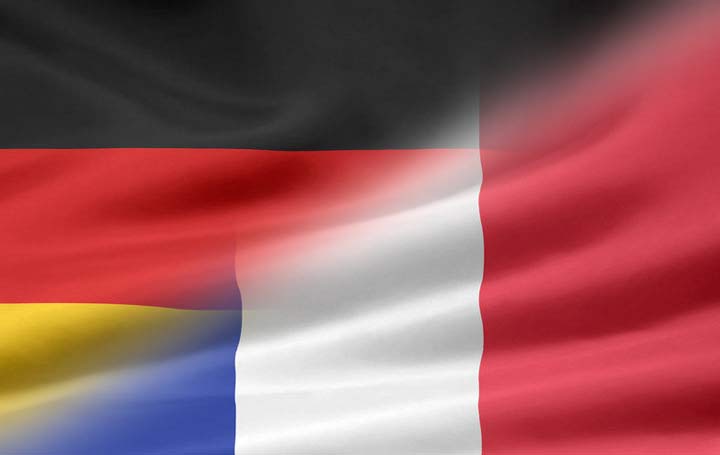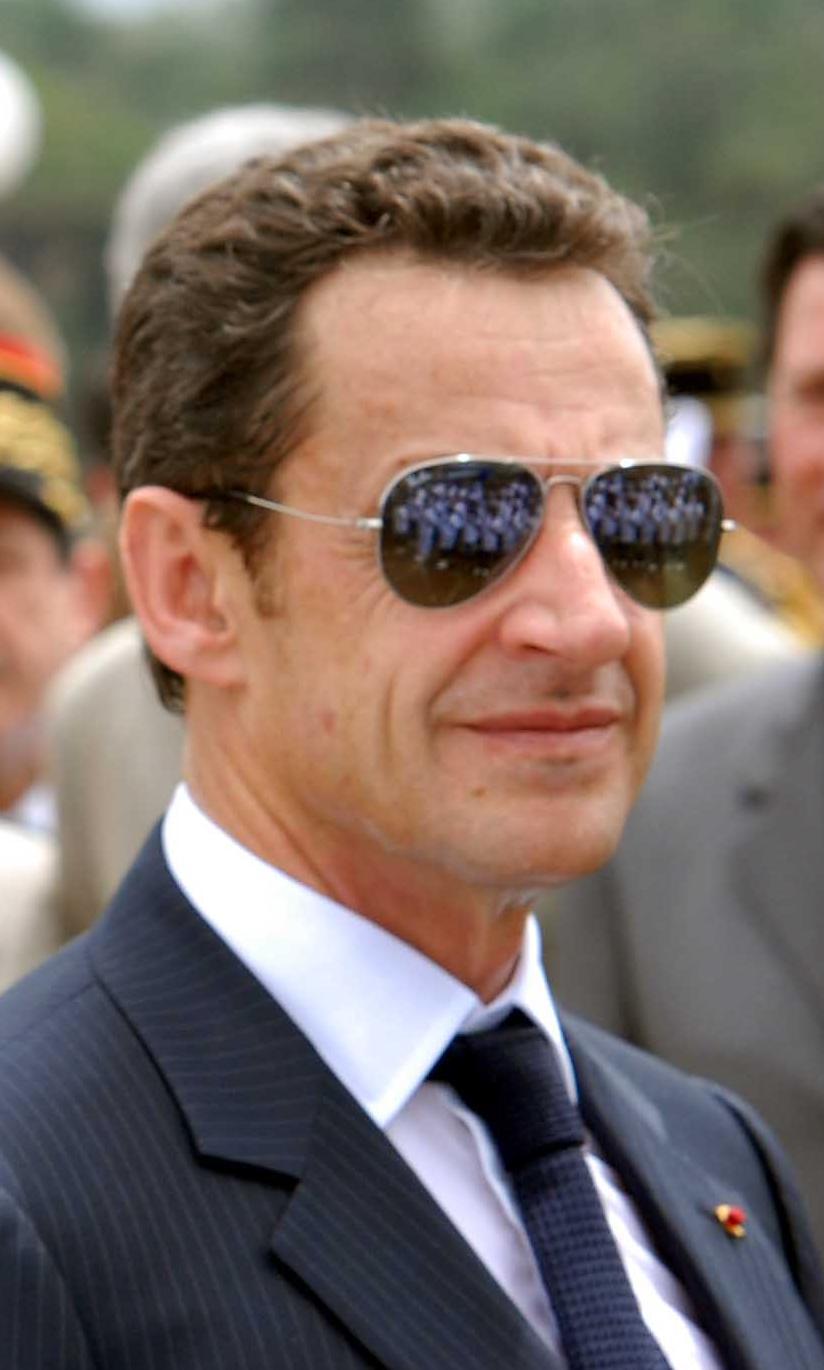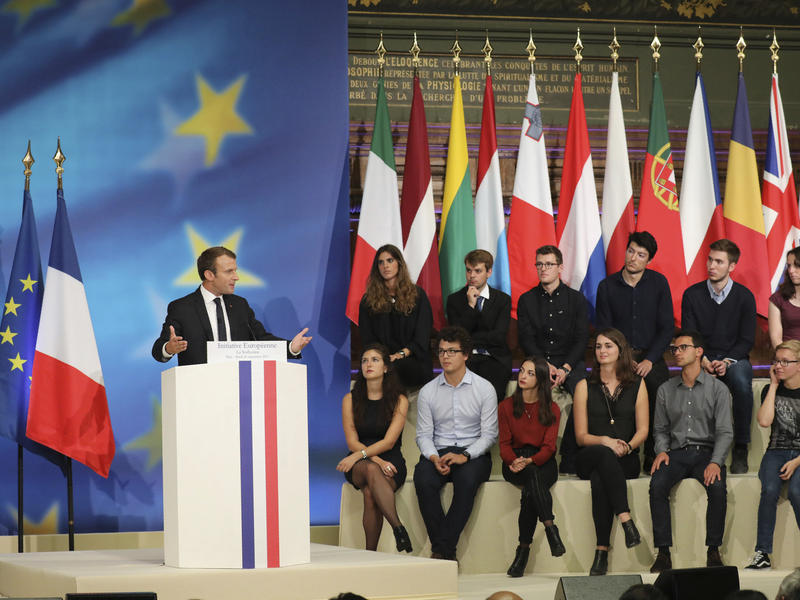President Emmanuel Macron laid out his vision for Europe in a major speech at the Sorbonne yesterday. This speech was billed as an Initiative for Europe and set out the President’s ambitions in a range of areas – defence, counter-intelligence, asylum and migration policy, an external policy focused on Africa and the Mediterranean, a sustainable development agenda (including ideas for a more flexible CAP), addressing the challenges of the digital economy, reforms of the eurozone, and institutional reform. He proposed that each Member State that signs up to this agenda (recognising that not all will want to) should organise a citizen’s dialogue in the coming months with a view to feeding into a new “group for overhauling Europe” which would be tasked to produce a report by Summer 2018 on measures to implement these ambitions.… Read the rest
French government fighting itself
France has always played a pivotal role in the CAP. As a founder member of the EU, Europe’s largest agricultural economy and the biggest single beneficiary of CAP monies, it has a lot at stake. It is therefore fascinating to witness a violent power struggle within Nicolas Sarkozy’s government over the future of the policy.
On 18 October, French Environment Minister Jean-Louis Borloo and Sustainable Development Minister Chantal Jouanno put their names to a 16-page reform proposal that would see France’s current annual €10 billion a year in CAP payments be divided between basic income payments with environmental compliance (€3 billion), farmland conservation contracts (€6 billion) and food chain and price safety nets (€1 billion).… Read the rest
French environment ministry coming out in favour of a green CAP
In a smart move, the Ministry proposes to keep the current €10 billion CAP budget for France – thus making the proposals more appealing to its domestic audience – and it uses the budget issue as a stick/carrot: a large budget can only be justified for a green CAP.
The money is allocated to several instruments (doing away with the traditional two-pillar structure):
* €3 billion for direct income support, available to all farmers in the EU at an equal level, without any historic base. National governments could have the possibility to top up these payments. A flexible component could be introduced to soften fluctuation in prices and regional yields.… Read the rest
Franco-German position on future of the CAP
 This week the governments of France and Germany have published a short document setting out their common position on the future of the common agricultural policy. It makes for fairly light reading though the following points are worth remarking on:
This week the governments of France and Germany have published a short document setting out their common position on the future of the common agricultural policy. It makes for fairly light reading though the following points are worth remarking on:
– The common position endorses further moves towards greater market orientation in the CAP but suggests countervailing measures are needed “to buffer devastating effects of growing price volatility and market crises”.
– There is nothing concrete on the future budget of the CAP and it is stressed that “a final decision on all questions relating to finances will be made when decisions are made on all policies and the entire EU financial framework”.… Read the rest
Sarkozy and Cameron on collision course?
David Cameron, leader of a British Conservative Party that is well ahead in the opinion polls just weeks ahead of a General Election, has already ruffled feathers across La Manche, with reported jibes about the diminutive stature of French President Nicolas Sarkozy, who is reeling from personal life scandals and a drubbing in regional elections. The remarks provoked a reaction from Paris, which accused the British Opposion leader of lacking respect for the French Head of State.
Such a trifling spat may be just the start of a tricky Anglo-French relationship over the future of EU budget, in particular the €60 billion common agricultural policy and Britain’s special budget rebate.… Read the rest
Voters punish Sarkozy, Le Maire stays on
It’s been a turbulent few weeks for French President Nicolas Sarkozy and voters expressed their dissatisfaction with his centre-right UMP party in regional elections yesterday. A resurgent Socialist-led opposition alliance took 52% of the vote and the UMP just 35%, squeezed in sevearl contests by the far-right National Front, which scored 9.4% of the national vote but took more than 22% in its two core regions in the north and south. Opposition candidates won in 21 of France’s 22 mainland regions.
 Among the losers was French Agriculture Minister Bruno Le Maire (pictured, right), who was rejected by voters of Normandy, where he was standing for election as Regional President.… Read the rest
Among the losers was French Agriculture Minister Bruno Le Maire (pictured, right), who was rejected by voters of Normandy, where he was standing for election as Regional President.… Read the rest
Sarkozy offers a deal on CAP reform
President Sarkozy took farmers into his confidence in a recent speech at the Salon d’agriculture where he proposed a new direction in France’s position on CAP reform post 2013. Noting that there were farms in France where the share of subsidies equals the value of production, he declared that this does not make sense if the farmer is a producer. He criticised the policy approach of accepting compensation for reductions in prices because, some day, there is no longer sufficient funds to continue to pay for the subsidies.
 Instead, he proposed to the other EU partners a deal whereby France would be flexible on the share of the next financial perspective going to agriculture provided that this was balanced by more rigorous Community preference which, implicitly would lead to a higher market return.… Read the rest
Instead, he proposed to the other EU partners a deal whereby France would be flexible on the share of the next financial perspective going to agriculture provided that this was balanced by more rigorous Community preference which, implicitly would lead to a higher market return.… Read the rest
Does France really want to suspend agri-environmental measures?
The president of the main farmers’ union, the Fedération Nationale des Syndicats d’Exploitants Agricoles (FNSEA) Jean Michel Le Metayer called for “a pause in agri-environmental measures” and the suspension of new measures. For French speaking readers, the (short) video is here.
The Ministry of agriculture seems sympathetic with this position, even though Nicolas Sarkozy has recently positioned himself as greener than his predecessors, with initiatives under a framework law called the “Grenelle of the environment” and a carbon tax (it turns out that farmers should be exempted from paying this tax, eventually). The French minister Bruno Le Maire apparently said a few days after that, indeed, a revision of the agri-environmental measures (AEM) was necessary and that it should start with an inventory of the provisions adopted throughout the Union according to the newspaper Le Figaro.… Read the rest
Paris Declaration on the Common Agricultural Policy
You can read here the agreed communiqué from the 22 countries which were invited by France to discuss the future of the CAP in Paris yesterday. The meeting itself was surrounded by some controversy given that 5 member states (UK, Sweden, Denmark, Netherlands and Malta) were not originally invited, although the UK did send along a civil servant as an observer. The French Agriculture Minister Bruno Le Maire talked at length about the objectives of the meeting in an extensive interview with Le Monde.
The countries attending were those which had supported the call by France and Germany for stronger measures to support dairy farmers in October this year.… Read the rest
What does France think?
France is Europe’s agricultural powerhouse and when it comes to the CAP, it is probably the single most influential member state. So what France thinks is of central importance to the future of EU farm policy. It is therefore good to see the publication of the latest of the national reform profile series at the CAP2020 website, run by the respected Institute for European Environment Policy. … Read the rest

